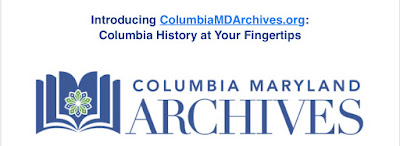Our very own Columbia Archives, championed and nurtured with wisdom and care by former Archives Manager Barbara Kellner, is coming into its own as a digital resource, under the leadership of current Archives Manager Lela Sewell-Williams.
There are so many reasons that this makes sense right now.
First of all, living within the confines of a pandemic reinforces how valuable it is to be able to access information without needing to make physical contact. The need to research and learn more doesn’t cease simply because we need to stay home. What better time to invest in digitizing our rich and varied collection so that it can become more accessible to those of us at home, not to mention the outside world.
That last bit is important, I think. I have tended to think of the Columbia Archives as our most wonderful hometown sandbox, not just of files and data and charts, but of historically significant photographs and delicious ephemera. A place where locals who had the time could sift through with delicious abandon. We love to learn about “us” here in Columbia. We’re pretty darned besotted with ourselves, at times.
But the truth is that what happened here in Columbia, Maryland is also of interest to folks in the outside world. Putting the archives online facilitates their research. And, when that happens, our history and experiences will become part of larger research about city-building, the 1960’s and ‘70s, interracial, multicultural communities, and more.
ColumbiaMDArchives.org provides:
- Real-time access to information (from a distanced space)
- Self-directed research support
- The ability to view the robust history of Columbia through archives and manuscripts
- Guides to assist with research
This summer I reached out to Archives Manager Lela Sewell-Williams with a question about Floyd McKissick, the founder of a planned community in North Carolina called Soul City. I had read that he had visited Columbia while in the process of formulating his plan. She promptly responded with links to the Floyd McKissick papers which are held at North Carolina Central University. She also filled me in on the limitations of the CA-wide furlough which meant that archivists were constrained in their ability to assist the public.
That’s totally understandable. And I didn’t expect Columbia to have 24/7, hot and cold running archivists anyway.
After receiving this week’s announcement I realize that the work of getting the Archives online must have been plugging along for some time now, despite furloughs and curtailed funding. This is a big project.
I read a lot of critical statements these days about how the Columbia Association spends our money. Investment in a resource that makes our own history more accessible to us and more usable by researchers around the world is worth every penny.
Maybe they have something to learn from us. Or, perhaps - - through their research - - we will discover we have something to learn from them.
A shoutout to Ms. Sewell-Williams and the Archives’ staff for their work on this, and thanks to Dannika Rynes, Senior Media Relations and Communications Manager, for keeping me in the loop.


Comments
Post a Comment